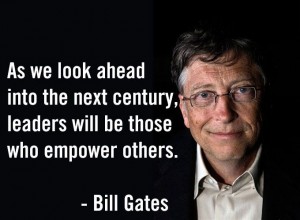
Entrepreneurs are considered in many countries as a national asset that should be cultivated, motivated and adequately encouraged since they are figures that can change the way in which we live and work. If they succeed, their innovations can improve even our standard of living. In short, in addition to the creation of wealth of their business projects, also create jobs working and even conditions to move towards a more prosperous society.
In the following, we will describe the importance of entrepreneurs to the economy and society:
Entrepreneurs create new businesses
They are individuals who break with the traditional existing offerings, in the form of new products and services, giving rise to the creation of new jobs and sometimes produces an effect of Cascade or virtuous cycle in the economy. And stimulation to companies or sectors that support these new companies create one even greater economic development.
For example, the TIC sector in India. Were a few companies that founded the industry in the 90’s to focus on programming. Soon the industry accelerated dominated by their own programmers. But most importantly, millions of other sectors benefited it.
Companies in related industries, such as the operators of call centers, maintenance of networks and hardware vendors companies flourished and teaching and training centers began to nurture a new class of workers offering best jobs and well-paid.
Similarly, future efforts at development in underdeveloped countries will need the support of a solid logistics, capital investment and a skilled workforce. And since the programmer qualified up to a designer of garments in 3D, the entrepreneur brings benefits across a broad spectrum of the economy.
Contribute to national income
The new business projects generate literally new wealth. Existing businesses may remain confined within the scope of existing markets and can reach stops in terms of income. But new and improved offerings, products or technologies of the entrepreneurs allow you to create new markets in developing and “new wealth”.
And the cascade effect mentioned above, that it entails an increase of employment and therefore higher income, contributes to higher tax revenues and possible increase in public spending. These revenues could be used by the Government to invest in more disadvantaged sectors or human capital for example recycling workers skills to adapt to emerging sectors.
Entrepreneurs promote social change
Through its unique offerings of new goods and services, entrepreneurs sometimes break with tradition and support the independence of obsolete technologies and systems. In general, this translates into a better quality of life and economic freedom.
For example, the water supply in a region with water scarcity forces people to stop working to catch the water so that it directly impacts your business, productivity and incomes. Imagine a pump innovative low-cost filling water automatically. Such installation will generate that people are able to focus on their jobs without worrying about

basic needs as water transportation so more time to devote to the work are reflected in economic growth.
We put a more contemporary example, smartphones and applications that have revolutionized the work and play around the world.
On the other hand, the globalization of technology means that entrepreneurs in the least developed countries have access to the same tools than those in the richest countries. And if the first take advantage of the advantage of a lower cost of living in their country, a young individual entrepreneur from an underdeveloped country can assume the power of the millions of euros that generate new products and services from a developed country.
They develop society

Entrepreneurs feed regularly the business initiatives of other enterprising people. They also invest in community projects and provides financial support to charitable organizations allowing further development further than their own companies.
Some famous, entrepreneurs such as Bill Gates, have used their money to fund causes, from education to public health. The qualities that make one entrepreneur are the same qualities that motivate them to move forward and help others.
The role of public bodies
Regulations play a crucial role in the promotion of entrepreneurship, but the regulation requires an act of balance by the regulatory authority. The unregulated entrepreneurial spirit can lead to unwanted social outcomes, including unfair market or financial crisis.
The findings of the United Nations University indicate for example the possible implications of “over parenting” of entrepreneurship. From the Center argues that “while corporate initiatives can increase economic growth and material wealth, it may not always resulting in improvements of the non-material welfare (or happiness)”.
Paradoxically, a significantly high number of entrepreneurs can give rise to strong competition and the scenario of having too many entrepreneurs / entrepreneurs can give rise to inequalities of income, so that citizens feel less happy.
The line of balance
Adequate interaction between entrepreneurship and economic development are the main challenge for the responsible politicians, the centers of development, entrepreneurs and change agents. But I think that if we understand the advantages and disadvantages from a balanced approach, we see that business entrepreneurship feeds into the economy and society resulting in a positive impact on both.
Follow us on @idoiaiturbe or @globalikbg

